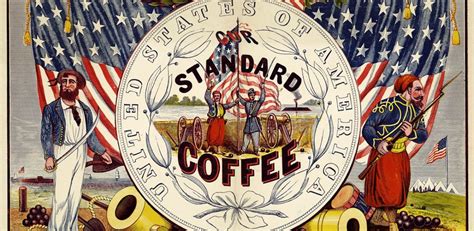While recent interest has shifted towards the synthetic stimulants used in modern military operations, it’s fascinating to look back and see how something as simple and ubiquitous as coffee has played a pivotal role. During the American Civil War, coffee wasn’t just a luxury; it was a crucial part of the Union soldiers’ daily lives, their energy levels, and, substantially, their morale. When looking back at this period, one finds ample anecdotal evidence from letters and diaries penned by soldiers, revealing the immense psychological and physiological boost that coffee provided during the arduous campaigns.
As remarked by several aficionados of Civil War history, the everyday life of soldiers during this monumental conflict receives less attention in school curriculums than it deserves. Numerous writings from soldiers detail how indispensable coffee became in maintaining their stamina and spirits. This uncovers a broader historical narrative where the availability of caffeine directly influenced the effectiveness of military units. While contemporary studies often emphasize technological innovation, logistical tactics, or combat strategies, the subtle but profound impact of something as mundane as coffee shouldn’t be overlooked.
This brings us to a parallel often drawn between the Civil War and World War II, where stimulants played a critical role as well. Whereas Civil War soldiers boosted themselves with coffee, World War II saw the German military employing methamphetamine, marketed as Pervitin, to fuel their Blitzkrieg tactics. Pervitin was believed to enhance soldiers’ stamina and aggression while keeping sleep at bay for prolonged periods. In contrast, the United States and Allied forces leaned more towards caffeine and later synthetic compounds like amphetamines.
Beyond anecdotal evidence and historical parallels, modern-day military use of stimulants paints a still-evolving picture. The US Air Force, for example, has evolved from caffeine and amphetamines to drugs like modafinil, which allegedly enhance cognitive functions and alertness while mitigating exhaustion. However, each stimulant, including modafinil, has its peculiarities and risks. An interesting tidbit from military practice indicates that they no longer use amphetamines casually but reserve them for specific situations like continuous long-haul flights or in combat missions that need sharp mental acuity over extended periods.
The science behind these stimulants shows how they impact the body and brain differently. As one avid commenter pointed out, modafinil increases dopamine, norepinephrine, and serotonin levels, altering a person’s alertness and decision-making capabilities. Much like caffeine, these changes can go unnoticed by the user but are often measurable. While caffeine is widely regarded as benign, its impact on sleep quality and long-term health gains attention when scrutinized more rigorously. Many people assume coffee merely fights sleepiness, yet its profound effects on cognitive processes and daily productivity highlight its broader implications.
Interestingly, discussions on the role of caffeine often diverge into personal anecdotes about its benefits and drawbacks in daily life. Just as Civil War soldiers viewed coffee as essential, modern professionals and students often find it indispensable for meeting the demands of rigorous schedules. Yet, the intriguing lives of Civil War soldiers also remind us that anything affecting the mind and body can be a double-edged sword. While the Union soldiers used coffee to fuel morale and endurance, excessive reliance on such stimulants can have counterproductive effects, both in combat and modern civilian life.
In the broader context of historical and contemporary stimulant use, the ethical and health dimensions contribute to ongoing debates. For example, in the Civil War, coffee was a boon, but one could argue that it merely masked the fundamental issue of soldier exhaustion. Similarly, while today’s modafinil and other drugs help manage military personnel’s vigors, they likely come with their long-term consequences. Notably, personal experiences shared by users range from increased productivity to severe physical and psychological side effects, highlighting the complex trade-offs involved.
Ultimately, whether in a 19th-century battlefield or a modern-day corporate office, the role of caffeine and other stimulants in human history underscores an enduring relationship between productivity, morale, and chemical assistance. From Civil War soldiers to high-flying fighter pilots, these substances have helped humanity push its physical and mental boundaries. However, the inherent risks and ethical dilemmas remind us that these ‘boosts’ come at a cost, necessitating thoughtful consideration on their appropriate use.


Leave a Reply